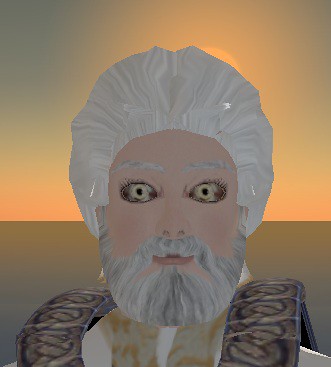Thursday, April 28, 2005
The End of Ontologies?
I just listened to Clay Shirky's excellent E-Tech 2005 podcast entitled, "Ontology is Overrated." He cites a web site, del.icio.us, which allows people to create and share their own ontologies (collections of bookmarks).
The key philosophical debate is whether there is inherent structure in the world/web or if humans (users) impose order on a chaotic world/web. If one subscribes to the first notion, then the trick is to discover the correct ontology, define it and then start putting all the websites into the correct buckets (add the correct content tags). If one subscribest to the second notion, then one creates one's own ontology as one goes along. These ontologies can be aggregated over large numbers of people and then statistically analyzed to determine the probabililty distributions of ontological categories that apply to a piece of content (web page).
The second makes more sense to me.
-----
By the way, in googling for del.icio.us, I discovered delicious monster. It is designed to work with the new Mac OS X.4 (Tiger) features Spotlight and Dashboard. This Delicious Monster accepts an image of a
The key philosophical debate is whether there is inherent structure in the world/web or if humans (users) impose order on a chaotic world/web. If one subscribes to the first notion, then the trick is to discover the correct ontology, define it and then start putting all the websites into the correct buckets (add the correct content tags). If one subscribest to the second notion, then one creates one's own ontology as one goes along. These ontologies can be aggregated over large numbers of people and then statistically analyzed to determine the probabililty distributions of ontological categories that apply to a piece of content (web page).
The second makes more sense to me.
-----
By the way, in googling for del.icio.us, I discovered delicious monster. It is designed to work with the new Mac OS X.4 (Tiger) features Spotlight and Dashboard. This Delicious Monster accepts an image of a
barcode on the back of any book, movie, music, or video game. Delicious Library does the rest. The barcode is scanned and within seconds the item's cover appears on your digital shelves filled with tons of in-depth information downloaded from one of six different web sources from around the world.Way cool!
IT Conversations
Wow, what a treasure trove. IT Conversations has hundreds (thousands) of great podcasts. I had wanted to attend the recent O'Reilly Emerging Technologies Conference, but the press of business kept me away. The keynote speeches are available at IT Converations. Not only do they have conference talks, they have noteworthy IT speeches and more than a dozen lecture series. Available in MP3 and iTunes (ACC/M4B) formats.
Friday, April 15, 2005
Build Your Own Blog
This month's (May '05) Popular Science Magazine has an "How 2.0" article by Nigel Power entitiled Build Your Own Blog. In it, he cites three open source blogging tool that one could download to a web server. They are MovableType, Textpattern, and WordPress.
Wednesday, April 06, 2005
The URL Paradox
Doc pointed me to an interesting article by Terry Heaton that asserts the reason the NYTimes is the most important news source is that it gives its articles away for free to the blogosphere.
The New York Times gives material freely to the bloggers, and the bloggers reward them with influence. This is why the people who run The Times should think very carefully before charging fees or otherwise locking up their content. This is why logical (Modernist) attempts to force demand by restricting access are playing a dangerous game with their online futures. And this is why online media companies need to make their archives freely available as well. Free is the operative word here. Influence is the currency.
Tuesday, April 05, 2005
Finderati
Here is a cool idea. See co-mentions of people in Google and Google Groups. Finderati looks at folks in the usability space. A general purpose co-mention engine would be a great data mining tool.
Google Maps - Satellite
Google Maps now lets you look at a satellite photo of the area you are interested in. Interestingly, they have a full resolution photo of the White House and the Pentagon, but have fuzzed up the photo of the Capitol. Here is my home town and my wife's home town. Any guesses?



